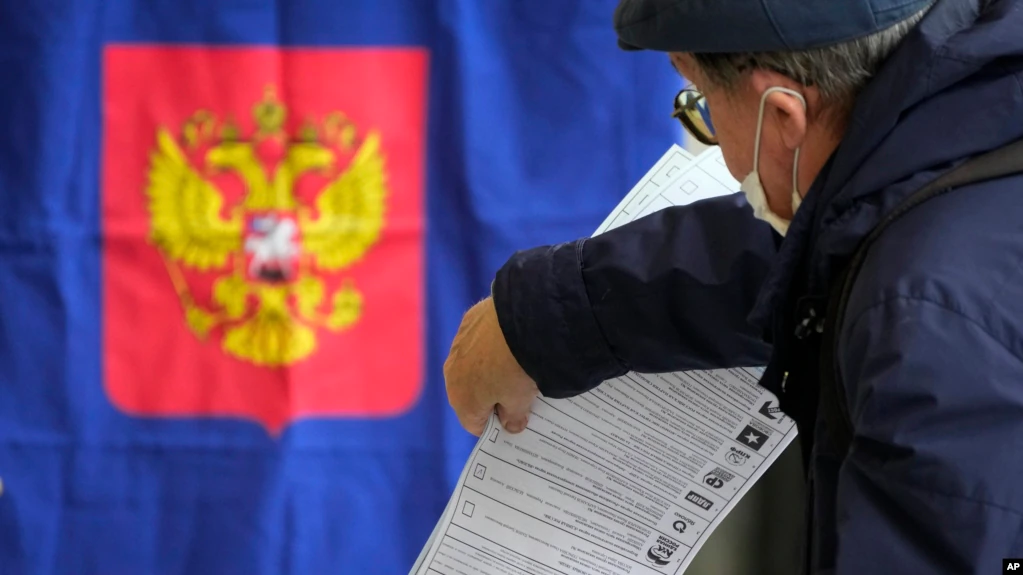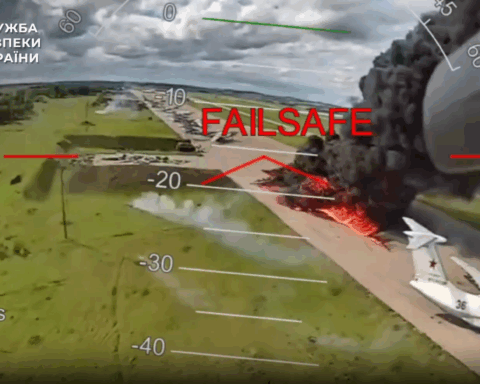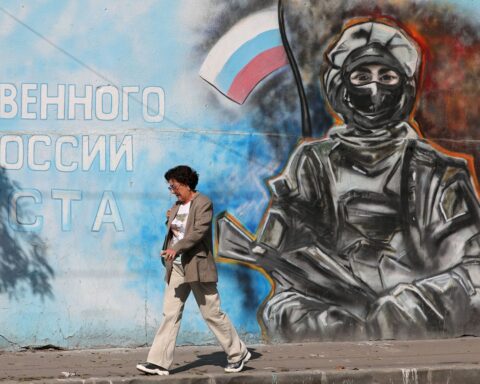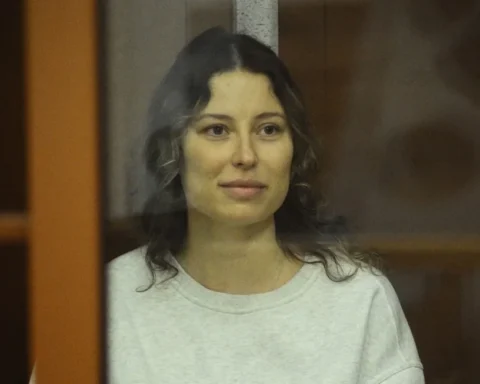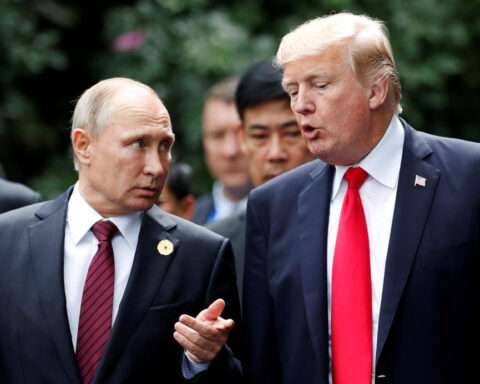Late on September 19, Moscow Mayor Sergei Sobyanin headlined an election victory rally for the ruling United Russia party, which was poised to maintain its two-thirds constitutional majority in the State Duma following elections marred by unprecedented repressions and stunning accusations of fraud.
Sobyanin closed the rally by leading the crowd in a chant of “Putin, Putin, Putin, Putin, Putin, Putin. Victory!”
It seemed a fitting acknowledgement that this year’s elections to the Duma, Russia’s lower house of parliament, were largely about a politician whose name appeared nowhere on the ballot — President Vladimir Putin, the longtime authoritarian leader whose fourth term in the Kremlin is set to expire in 2024.
Constitutional amendments pushed through the United Russia-dominated Duma in 2020 allow Putin to seek two more terms as president and potentially remain in the post until 2036. Whether Putin decides to seek another term for himself or to use the opportunity to anoint a hand-picked successor, the next presidential election promises to be portentous.
“These elections were a dress rehearsal for the 2024 elections,” Moscow-based political analyst Konstantin Kalachyov said.
The elections were an exercise in manageability at a time when the public has become increasingly disillusioned with United Russia, in particular, and the overall stagnation of the country’s political and economic situation in general.
“In some of their elements, the campaign and the vote were clearly a rehearsal for 2024,” analyst Andras Toth-Czifra wrote on Twitter.
‘People Want Change’
Moscow-based analyst Dmitry Oreshkin says the political climate for United Russia has changed and that is driving the Kremlin’s thinking about 2024.
“We are living through a moment when the Kremlin is losing unambiguous control over the minds of voters,” he told RFE/RL. “We are seeing how voters are experiencing growing anger at what we might call the status quo. People want change.”
Stanislav Andreichuk, co-chairman of the independent election-monitoring group Golos, elaborated on this theme in a recent essay.
“Ten years ago, a truly massive election observer cadre appeared on the scene,” he wrote. “Around five years ago, Russian nonprofits and politicians learned to fundraise to such an extent that an entire class of civil society, not just a handful of organizations, could survive. 2019 saw the first mass protests against denied candidate registrations, not just in the aftermath of rigged elections. Now the state is starting to lose its monopoly of the media space, coercion is becoming ineffective, support from previously loyal electorates is fading out, and new politicians are replacing those who were jailed or forced to emigrate.
“The toughened election laws thus appear to be the regime’s attempt to roll back the oncoming tide of public dissatisfaction,” he concluded.
In the run-up to the Duma vote, the authorities introduced dozens of revisions to the election law, including restricting access to the video cameras monitoring polling stations, the introduction of “experimental” online voting in selective regions, the introduction of three days of voting, and the expanded use of mobile voting stations and at-home voting.
“These were opaque elections,” Golos analyst Vitaly Averin said. “We didn’t have direct video feeds like we had during the [2018] presidential election and the last federal elections. And we have seen what serious obstacles election monitors have been facing.”
Tightening Administrative Control
Moscow-based analyst Aleksandr Kynev spoke similarly about the innovation of three days of voting, which was supposedly introduced to make participation more convenient and reduce crowding in the face of the pandemic.
“In reality, the main purpose of the three days is to tighten administrative control,” Kynev told RFE/RL’s Russian Service. “The authorities in recent years have gotten the feeling that people can be ordered to go to the polls, but they vote the way they want to…. They thought that by spreading out the flow of voters, they would create the impression that they were being watched more carefully and more strictly.”
The likely expansion of unverifiable electronic voting in the 2024 presidential election could be a crucial step toward the end of the pretense of democracy in Russia, analysts and Kremlin critics say.
“These elections, while far from perfect, could end up being Russia’s last in paper form,” Golos’s Andreichuk wrote in his essay. “It is obvious the government aims to implement electronic voting all across the country by the 2024 presidential election. If that happens, monitoring the sanctity of the vote will not even be theoretically possible.”
This is true not only of the tabulation of the results, Oreshkin argues, but of the votes themselves.
“It was for the state-dependent workers, many of whom voted on computers at work,” he said. “These people are certain that there is a device that checks how he voted and there is no way to convince him that the system is anonymous.”
It is already known that law enforcement authorities accessed personal data from hacks of opposition leader Aleksei Navalny’s websites and visited many of his supporters in what was seen as an intimidation tactic in the days immediately preceding the Duma elections.
New Times, New Approaches
Another feature of the recent election campaign that could set the tone for the 2024 vote was the relentless crackdown on genuine opposition, independent civil society, and independent media. This was done primarily through the mechanism of the vaguely written and haphazardly enforced laws on “foreign agents,” “undesirable organizations,” and “extremism.”
The laws were used to disqualify prominent opposition candidates, to jail some, and to drive others out of country. In addition, they were used to make it significantly more difficult to report on the campaign and to monitor the elections.
But with major independent media outlets under assault and many prominent rights NGOs shutting down under the government’s hostile designations, the political landscape for the 2024 elections is being reshaped.
In an essay for RFE/RL’s Russian Service, Moscow journalist Aleksandr Ryklin noted that “many experts are certain that the presidential administration no longer plays the decisive role in the formation of domestic policies. They say that it has been replaced by men in epaulets from the highest ranks of the [Federal Security Service].”
“And those guys, as we all know, have different methods,” Ryklin added. “It is important to understand this didn’t just happen by itself. At the very top of the pyramid of power, they decided that new times call for new approaches.”


